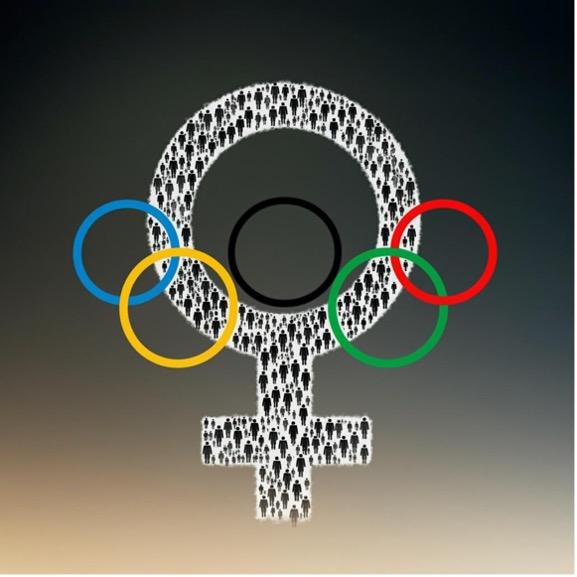In recent years, the practice of sex testing in competitive sports has ignited a fierce debate over fairness, privacy, and human rights. A new CNN report highlights the voices of human rights advocates who condemn these policies as harmful, intrusive, and discriminatory. Behind the headlines, athletes subjected to scrutiny face not only public exposure but profound personal and psychological consequences. As governing bodies grapple with how to define eligibility in women’s sports, advocates warn that the current protocols risk violating the dignity and rights of those they aim to regulate. This article explores the complex and deeply contested landscape of sex testing in sports through the perspectives of those fighting for reform.
Human Rights Advocates Condemn Sex Testing as Violation of Dignity and Privacy
Human rights experts and advocates have vocally challenged the practice of sex testing in sports, labeling it an intrusive violation that undermines both personal dignity and bodily autonomy. These tests often subject athletes-particularly women-to humiliating scrutiny and public exposure, leading to social stigma and psychological trauma. Critics argue that rather than enhancing fairness, sex testing perpetuates discriminatory biases and reinforces rigid, outdated norms about gender identity and biology.
Key concerns raised by advocates include:
- Infringement on privacy: Athletes are compelled to undergo invasive medical procedures without adequate consent or confidentiality safeguards.
- Emotional and reputational harm: Disclosure of test results often leads to public scandal and marginalization within their sporting communities.
- Lack of scientific consensus: The criteria used for sex testing do not account for natural variations in human biology and cannot reliably determine eligibility.
- Unequal application: These measures disproportionately target women and those who do not conform to traditional gender expectations.
| Impact | Description |
|---|---|
| Dignity | Violated through compulsory physical examinations |
| Privacy | Breached by public disclosure of medical information |
| Mental Health | Heightened anxiety and identity struggles among athletes |
Challenges Faced by Athletes Subjected to Gender Verification in Competitive Sports
Athletes subjected to gender verification in competitive sports often endure profound personal and professional repercussions. The process itself can lead to emotional distress, with many experiencing feelings of shame, alienation, and anxiety. Beyond the psychological toll, those tested risk being publicly outed without consent, exposing them to unwanted scrutiny and discrimination not only from sports authorities but also from society at large. Human rights advocates highlight that this invasive scrutiny fosters a climate of stigma and suspicion, disproportionately targeting women and non-binary athletes who do not conform to conventional notions of sex and gender.
The challenges go beyond emotional strain, affecting athletes’ careers and physical health. Many face abrupt disqualification, loss of sponsorships, and the sudden dismantling of years of hard work. Moreover, the ambiguity and inconsistencies in testing policies worldwide exacerbate the confusion and inequality faced. The table below outlines the core challenges reported by athletes and advocacy groups:
| Challenge | Impact |
|---|---|
| Privacy Invasion | Loss of confidential medical information |
| Public Outing | Media exposure without consent |
| Psychological Harm | Anxiety, depression, stigma |
| Disqualification | Career disruption and banishment |
| Health Risks | Hormonal treatments and invasive exams |
Calls for Inclusive Policies and Ethical Reforms to Protect Athlete Rights
Amid growing outrage over invasive sex verification protocols, human rights advocates emphasize the urgent need for inclusive policies that respect the dignity and privacy of athletes. Experts argue these measures must be grounded in ethical principles rather than outdated notions of “fair play” that disproportionately target women and marginalized groups. Campaigners call for a framework that prioritizes informed consent, ensures confidentiality, and eliminates discriminatory practices that can cause psychological harm and public humiliation.
Several organizations have outlined key reforms to safeguard athlete rights, urging sports governing bodies to:
- Remove mandatory and invasive sex testing procedures
- Implement confidential and voluntary medical evaluations
- Establish independent oversight committees with diverse representation
- Provide comprehensive education on gender diversity to coaches and officials
- Support legal avenues for athletes to challenge violations of their rights
| Policy Aspect | Current Challenge | Proposed Solution |
|---|---|---|
| Consent | Mandatory testing without athlete approval | Voluntary, informed consent protocols |
| Privacy | Public disclosure of sensitive data | Strict confidentiality measures |
| Ethical Oversight | Limited independent review | Creation of multidisciplinary ethics boards |
Wrapping Up
As debates over fairness and inclusivity in sport continue to unfold, the voices of those directly affected by sex testing policies remain crucial. Human rights advocates emphasize that beyond the headlines lie real individuals whose dignity and privacy are often compromised in the name of competition. The evolving conversation demands not only scientific rigor but also a commitment to protecting the fundamental rights of all athletes. As governing bodies and stakeholders reassess their approaches, the challenge will be to balance integrity in sport with respect for human rights-a balance that remains, for many, still out of reach.

